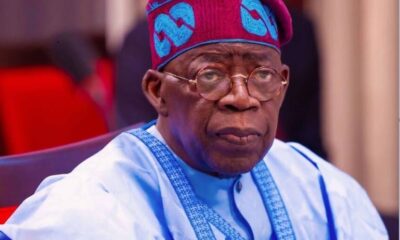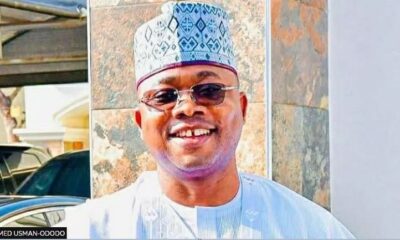News
Gbajabiamila behind my ordeal, detained journalist reveals on Inside Sources

How my abdutors forced me to apologize to Tinubu’s Chief of Staff, by Journalist Detained for 2 weeks in military dungeon
A journalist, Segun Olatunji, has recounted his 14-day detention ordeal in the custody of secret security agents of the Nigerian military over a report he wrote about the Chief of Staff to the President, Femi Gbajabiamila.
“They asked me to write an apology to the Chief of Staff to the President that I’m sorry for writing the story and that I will no longer be a terrorist because they also accused me of terrorism,” he said on Inside Sources with Laolu Akande, a popular weekly programme aired on Channels Television on Friday.
Olatunji, who is the General Editor of online news platform First News, said he was accused of terrorism for writing his story titled, ‘How Gbajabiamila attempted to corner $30bn, 66 property Special Investigator traced to Sabiu’.
Olatunji, who narrated his horrific encounter with hooded security operatives, wondered about the whereabouts of his source in the presidency, the fellow who furnished him with insider’s information for the story.
“I am sure they must have tried to arrest him. I don’t even know his whereabouts now,” he said.
Flown To Abuja From Lagos
“My abduction saga began on March 15 at about 6 pm,” he began his narration. “Suddenly, I saw some armed men in my living room.”
“Immediately, they came in, the man leading me took my two phones. I asked to know who he was, but he said: ‘We are from the military, and we are here to arrest you’. I was just wearing my boxers short.
“They came in about three military vehicles and three power bikes. They were more than 20 and it was a combination of different formations – soldiers from the Army, Air Force personnel, DIA personnel, strike force and others that I can’t identify, they were in mufti.”
Olatunji said he was bundled me into one of their vehicles to somewhere around the Air Force base in Lagos. “A military aircraft came from Abuja. They blindfolded me and dragged me into the aircraft, and they took off. I was still blindfolded and handcuffed.”
He said in Abuja that he was moved to an underground cell while his legs were also chained. “They dragged me to an underground cell, the place was in total darkness,” he said, adding that he joined some other detainees who were always praying every day to secure their freedom after being in the cell for about two months.
Olatunji said at a point, the hooded security agents whose face couldn’t be seen in the thick darkness of the cell told him that he wasn’t sober for his offence and then tightened the handcuffs in his hands. “I was groaning because the iron was cutting into my skin. I was left in that state (from Friday night) until Monday morning,” he narrated.
“Up till this moment, my right hand is still numb. It’s as if there is no blood there. And then my right leg, too. I have been treating it, and it’s going gradually.”
Continuing, he said, “Then they came to the crux of the matter which was a story we carried in January about the Chief of Staff to the President. It’s a story we got, and we had our sources. In fact, they were not concerned about the veracity of the story; their major concern was to know the sources of the story. ‘Who do you have in the presidency? Who are your sources there?’ they kept asking me.”
Olatunji said the secret agents ransacked his phones and got his source for the story. He said the whereabouts of his source in the presidency have remained unknown since the incident.
Close Shave With Death
The editor said he could have been killed and nobody would have known but for the intervention of some watchdogs, including the International Press Institute, the Nigerian Union of Journalists, and the Nigerian Guild of Editors.
“I was detained on March 15 and released on March 28. There was nothing like body contact. Nobody hit me but the psychological torture alone. Some of them (the detectives) threatened me, subtle and open threats,” he recounted.
“Sometimes they would give us three slices of bread. I never took their tea and beans. They got angry, but I said I won’t taste those two things.
“They gave me three slices of bread, and I would go into the toilet to drink water with my bare hands, directly from the tap.
“There was no way I could know the time of the day because when you are there, you don’t know daytime or nighttime. It was all dark all through.
“The experience was chilling, terrifying because I have never had it so bad with security agencies.
“In this case, nobody knew where I was. Anything could have happened. In fact, they told me they could have killed me, and nobody would know anything. And you could see that from their attitude because from what I learnt, they kept denying until March 27 or so when the IPI came out and tell them: ‘You are having this man in your custody, he is there, you have to release him. And then the NSA and the Minister of Information intervened. Up until that period, they denied. So, within that period, they could have done anything to me. In fact, they told me they could have killed me, and nobody would know.”
On how he was released after 14 days, he said it was “gangster-like” as the security operatives did not let senior journalists who came to sign documents for his bail to know where he was detained.
According to Olatunji, the security operatives moved him out of the underground cell and gave instructions to his colleagues to meet them at a location in Abuja at midnight.
“They removed the blindfold from my face, and that would be the first time in 14 days that I would see sunlight.
The condition is that whenever they need me in court, they (my guarantors) would have to produce me.”
“I don’t think they would ever get back to me,” he said.
The journalist thanked the IPI, the Nigerian Union of Journalists, and the Nigerian Guild of Editors for standing by him through his trial. “The solidarity they have displayed in my case is overwhelming. They really tried.”
Commenting on the matter, Akande asked the military authorities to conduct a probe into the incident, saying that it was bad for democracy, “bad showcasing” for the miliary, and President Bola Tinubu “We can’t militarise the media space. If there is an issue with a story, deal with it the civilian way,” said the ex-presidential aide.
Related

-
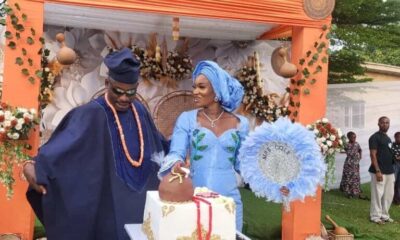
 News6 days ago
News6 days agoWofai Fada ties knot with lover in traditional ceremony
-

 Business6 days ago
Business6 days agoIsrael to shutdown Al Jazeera news network in country amid war with Gaza
-
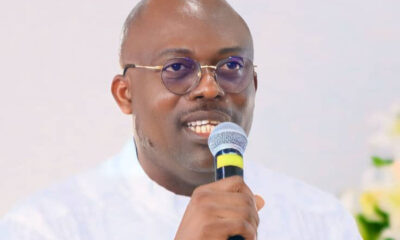
 Politics3 days ago
Politics3 days agoAPC okays Assembly’s plot to impeach Fubara
-
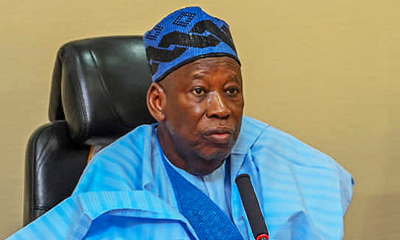
 Politics4 days ago
Politics4 days agoOnly NWC has power to suspend Ganduje – APC Legal Adviser – Daily Trust
-
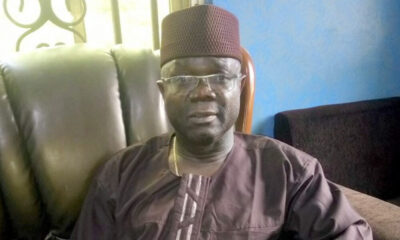
 Politics6 days ago
Politics6 days agoWhy Ribadu, other top officials in Tinubu’s government must support State Police – Salis
-
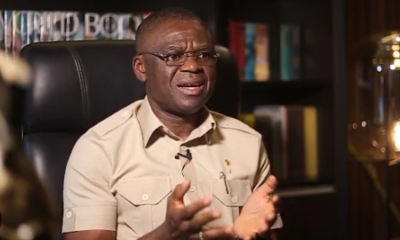
 Politics7 days ago
Politics7 days agoWhy I refused to return govt vehicles – ex-Edo gov, Shaibu
-
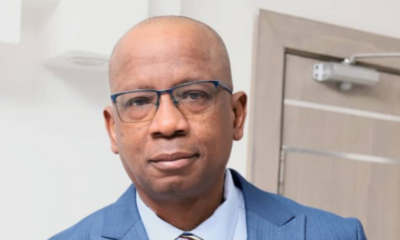
 Business5 days ago
Business5 days agoNigerians knock as Lagos says most of Lekki-Epe buildings without govt approval
-
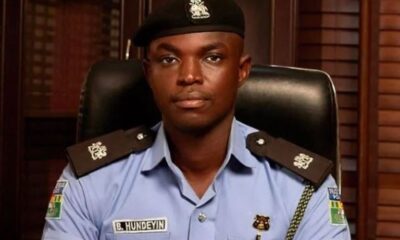
 News5 days ago
News5 days agoNigeria police says ‘one with gun is majority’
